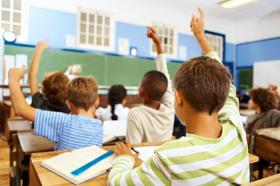Serving 81 students in grades 9-12, Red Lake Alternative Learning ranks in the bottom 50% of all schools in Minnesota for overall test scores (math proficiency is bottom 50%, and reading proficiency is bottom 50%).
The percentage of students achieving proficiency in math is <50% (which is higher than the Minnesota state average of 46%). The percentage of students achieving proficiency in reading/language arts is <50% (which is lower than the Minnesota state average of 61%).
The student-teacher ratio of 16:1 is higher than the Minnesota state level of 13:1.
Quick Facts (2025-26)
- School Type: Alternative school
- Grades: 9-12
- Enrollment: 81 students
- Student-Teacher Ratio: 16:1
- Graduation Rate: ≤10% (Btm 50% in MN)
- Math Proficiency: <50% (Top 50%)
- Reading Proficiency: <50% (Top 1%)
- Source: National Center for Education Statistics (NCES), MN Dept. of Education
Top Rankings
Red Lake Alternative Learning ranks among the top 20% of public schools in Minnesota for:
Category
Attribute
Percent Eligible For Free Lunch
School Overview
Red Lake Alternative Learning's student population of 81 students has grown by 14% over five school years.
The teacher population of 5 teachers has grown by 400% over five school years.
School Type
Grades Offered
Grades 9-12
(No virtual instruction)
(No virtual instruction)
Total Students
81 students
Gender %
Total Classroom Teachers
5 teachers
School Calendar
School Rankings
The diversity score of Red Lake Alternative Learning is 0.02, which is less than the diversity score at state average of 0.59. The school's diversity has stayed relatively flat over five school years.
Math Test Scores (% Proficient)
<50%
46%
Reading/Language Arts Test Scores (% Proficient)
(16-17)<50%
61%
Student-Teacher Ratio
16:1
13:1
American Indian
99%
2%
Asian
n/a
7%
Hispanic
1%
12%
Black
n/a
12%
White
n/a
61%
Hawaiian
n/a
n/a
Two or more races
n/a
6%
All Ethnic Groups
Graduation Rate
≤10%
84%
Eligible for Free Lunch
54%
36%
Eligible for Reduced Lunch
7%
7%
School Statewide Testing
School District Name
Source: National Center for Education Statistics (NCES), MN Dept. of Education
Profile last updated: 02/09/2025
Frequently Asked Questions
What percent of students have achieved state testing proficiency in math and reading?
<50% of students have achieved math proficiency (compared to the 46% MN state average), while <50% of students have achieved reading proficiency (compared to the 61% MN state average).
What is the graduation rate of Red Lake Alternative Learning?
The graduation rate of Red Lake Alternative Learning is 10%, which is lower than the Minnesota state average of 84%.
How many students attend Red Lake Alternative Learning?
81 students attend Red Lake Alternative Learning.
What is the racial composition of the student body?
99% of Red Lake Alternative Learning students are American Indian, and 1% of students are Hispanic.
What is the student-teacher ratio of Red Lake Alternative Learning?
Red Lake Alternative Learning has a student ration of 16:1, which is higher than the Minnesota state average of 13:1.
What grades does Red Lake Alternative Learning offer ?
Red Lake Alternative Learning offers enrollment in grades 9-12 (No virtual instruction).
What school district is Red Lake Alternative Learning part of?
Red Lake Alternative Learning is part of Red Lake ÎÛÎÛÂþ» School District.
School Reviews
Review Red Lake Alternative Learning. Reviews should be a few sentences in length. Please include any comments on:
- Quality of academic programs, teachers, and facilities
- Availability of music, art, sports and other extracurricular activities
Recent Articles

Advocating for Your Child in ÎÛÎÛÂþ» School (Without Overstepping)
Learn respectful, effective strategies for advocating your child’s needs in public school without undermining teachers or crossing boundaries.

How Parents Can Prepare for the ÎÛÎÛÂþ» School Parent Interview
Essential guide for parents: strategies, sample questions, and expert tips to prepare for your public school parent interview.

Failures of U.S. ÎÛÎÛÂþ» Education in 2025
Explore the 15 biggest failures of the American public education system in 2025, with updated data, expert insights, and real-world examples.





